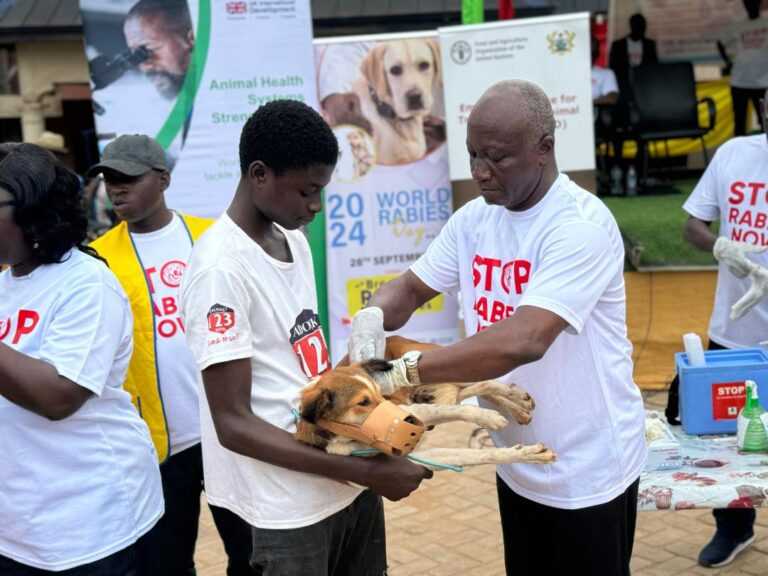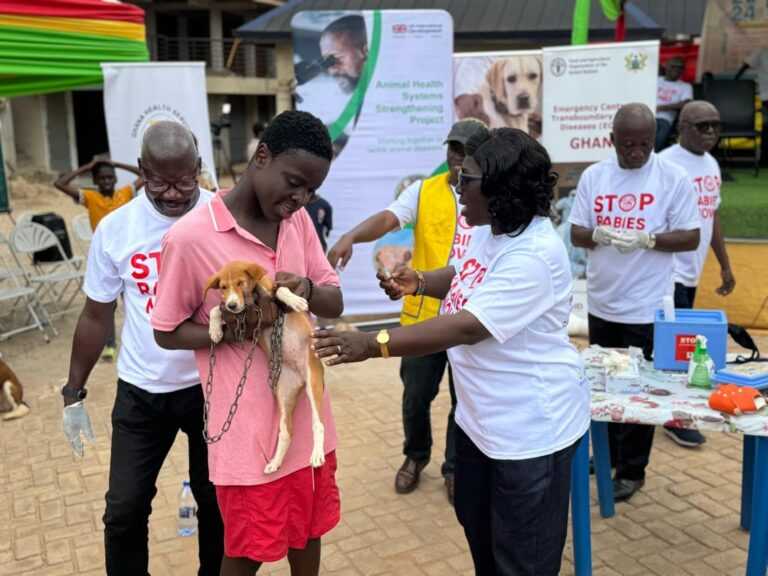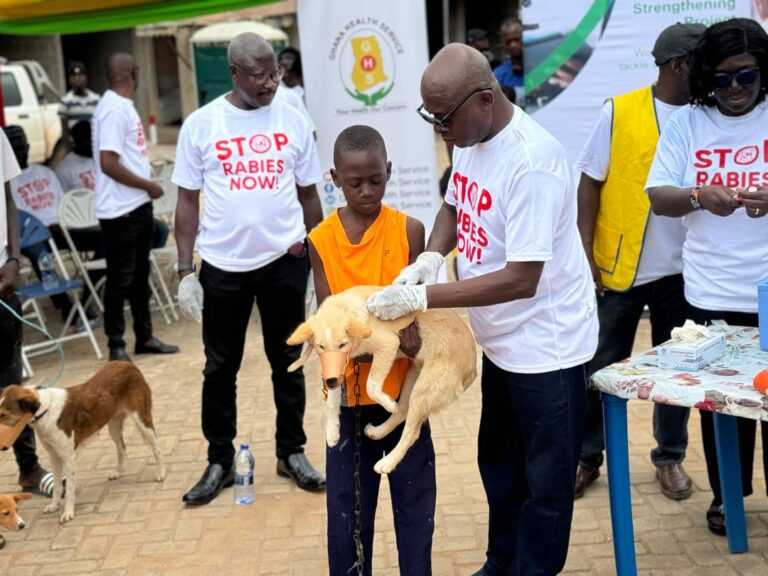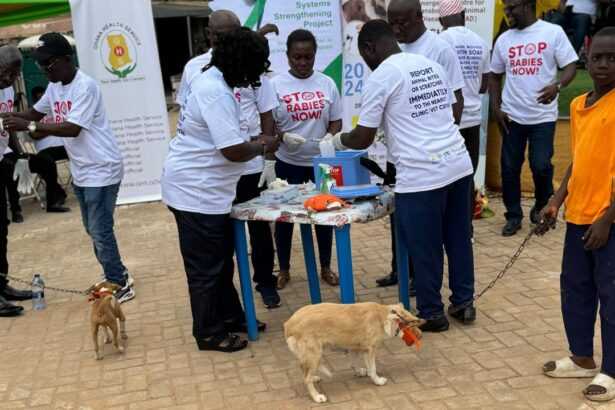Ghana has reported a total of 603 rabies cases in the past four years, with the Ashanti, Greater Accra, Upper East, Western, and Central regions experiencing the highest number of outbreaks.
Dr. Yaw Fenteng Danso, the Deputy Chief Veterinary Officer, shared this information during a durbar in Asuofia near Barekese in the Ashanti Region, emphasizing that rabies is entirely preventable.

Between 2023 and 2024, the Veterinary Services Department (VSD) vaccinated 172,000 dogs and cats, achieving a coverage rate of only 20%.
Dr. Fenteng Danso attributed the rise in rabies cases to pet owners’ apathy, stating, “The recent increase in rabies incidents in various parts of Ghana can be linked to low vaccination coverage (20%) due to owner negligence, perceived high vaccination costs, and a lack of penalties for dog owners who fail to vaccinate their pets.”
He also expressed concern about the misconception that hunting dogs perform poorly after receiving rabies vaccinations, explaining, “There is a widespread belief among hunters that vaccinated hunting dogs underperform.”

These comments were made during the World Rabies Day Celebration, where the Veterinary Services provided free anti-rabies vaccinations for pets in Asuofua and surrounding areas.
World Rabies Day is an annual event initiated by the Global Alliance for Rabies Control (GARC) aimed at the global elimination of rabies by 2030.
Celebrated on September 28 each year, this day marks the anniversary of Louis Pasteur’s death, who developed the first rabies vaccine and laid the groundwork for rabies prevention.

Globally, rabies is estimated to cause approximately 55,000 human deaths each year, with 56% of these fatalities occurring in Africa. About half of the world’s population resides in areas endemic to canine rabies and is considered at risk of contracting the disease.
Despite advancements in prevention, rabies remains a neglected and underreported disease, with a 100% case fatality rate, making it the most lethal zoonotic disease. Importantly, rabies is a vaccine-preventable viral infection.
Discussing the theme “Breaking Rabies Boundaries,” the Deputy Chief Veterinary Officer emphasized the urgent need to eliminate barriers hindering progress toward achieving the global objective of zero rabies deaths by 2030.
He highlighted factors impeding the fight against rabies, including a lack of collaboration, insufficient cooperation, and a need for greater innovation and awareness.
Dr. Mrs. Mabel Abudu, the Ashanti Regional Veterinary Officer, underscored that rabies is one of the deadliest zoonotic diseases, responsible for significant losses in both human and animal populations.
She called for heightened awareness and a renewed commitment to eradicate this deadly disease globally by 2030.
Dr. Abudu also noted that the Atwima Nwabiagya North district has experienced sporadic rabies outbreaks among both animals and humans, prompting the celebration of World Rabies Day in the area to raise awareness about this important yet often overlooked disease.

“I encourage everyone present here to take an active role in spreading the message of rabies prevention and also ensure that our homes and neighborhood is free from rabies by the year 2030.”
“Be reminded once again that rabies is 100% preventable. We must therefore strengthen the collaborations between the veterinary services, health professionals, the environmental sector, local and traditional authorities, as well as community members in order to eliminate this deadly disease.
Through this One Health approach, I am confident that we will surely be able to “Break the Rabies Boundaries” for the safety of our future generation.” she urged.
























































![[FREE FREE MONEY] Predict and Win a Guaranteed GH¢200 From Us EVERY WEEK](https://wordpress.ghanatalksradio.com/wp-content/uploads/2022/02/Predict-and-Win-Final-09-03-2021-218x150.jpg)
![[Predict & Win – 8th/Oct.] WIN A Guaranteed ¢200 From Us This Week](https://wordpress.ghanatalksradio.com/wp-content/uploads/2021/10/maxresdefault-16-218x150.jpg)
![[Predict & Win – 2nd] WIN A Guaranteed ¢200 From Us This Week](https://wordpress.ghanatalksradio.com/wp-content/uploads/2021/09/maxresdefault-50-218x150.jpg)
![[Predict & Win – 25th] WIN A Guaranteed ¢200 From Us This Week](https://wordpress.ghanatalksradio.com/wp-content/uploads/2021/09/maxresdefault-36-218x150.jpg)
![[Predict & Win – 18th] WIN A Guaranteed ¢200 From Us This Week](https://wordpress.ghanatalksradio.com/wp-content/uploads/2021/09/maxresdefault-23-218x150.jpg)









![[National cathedral] See full list of churches that have contributed since 2018](https://wordpress.ghanatalksradio.com/wp-content/uploads/2020/09/Ghana-National-Cathedral-GhanaTalksRadio-100x70.jpg)



